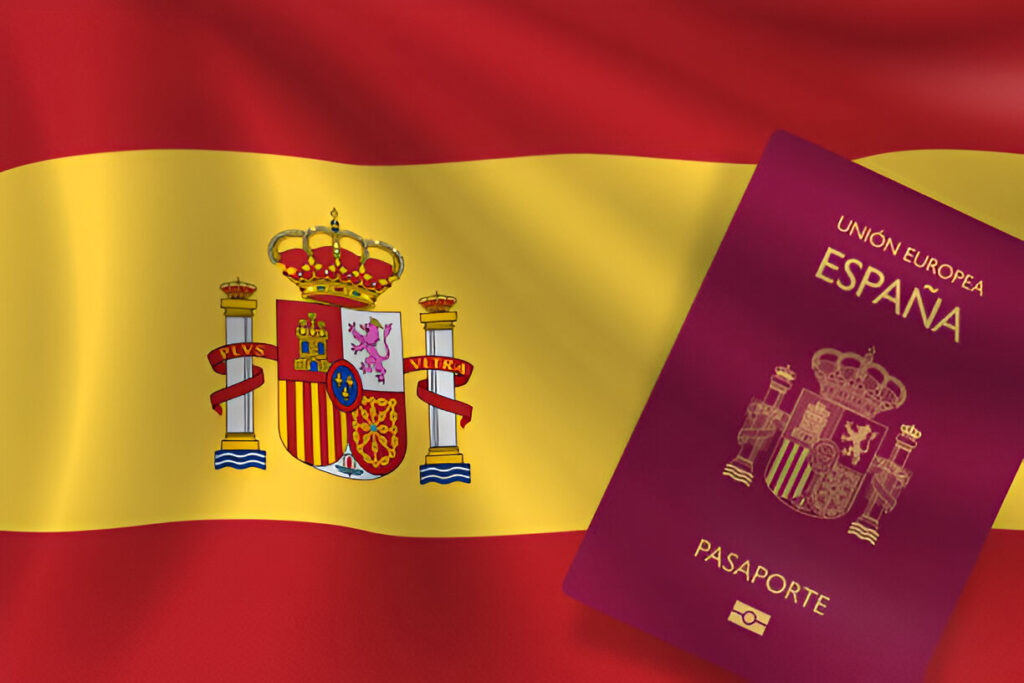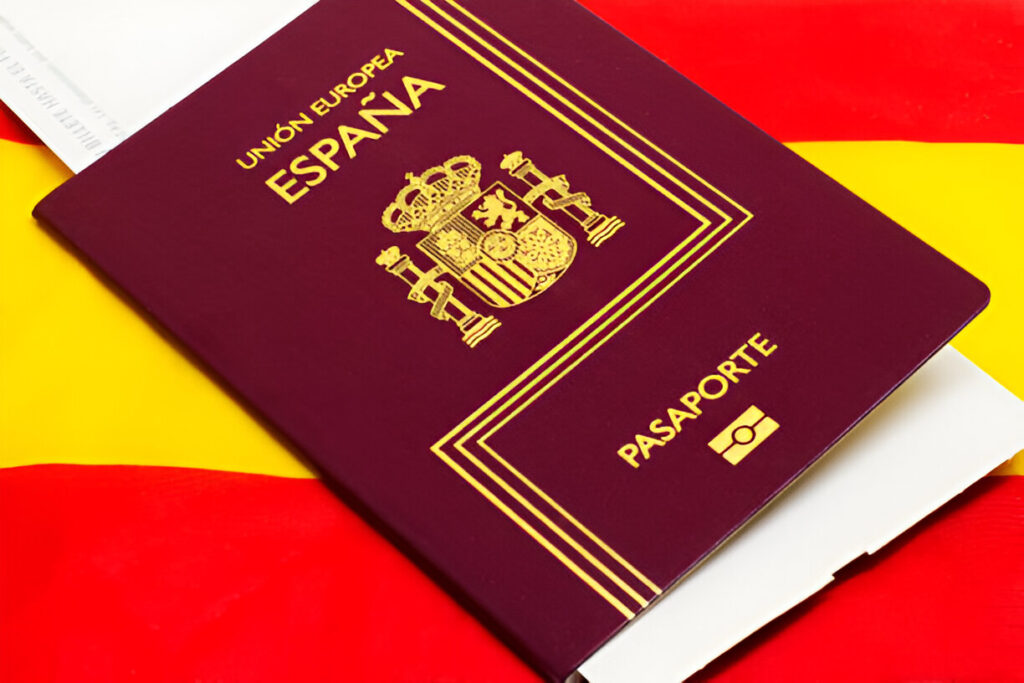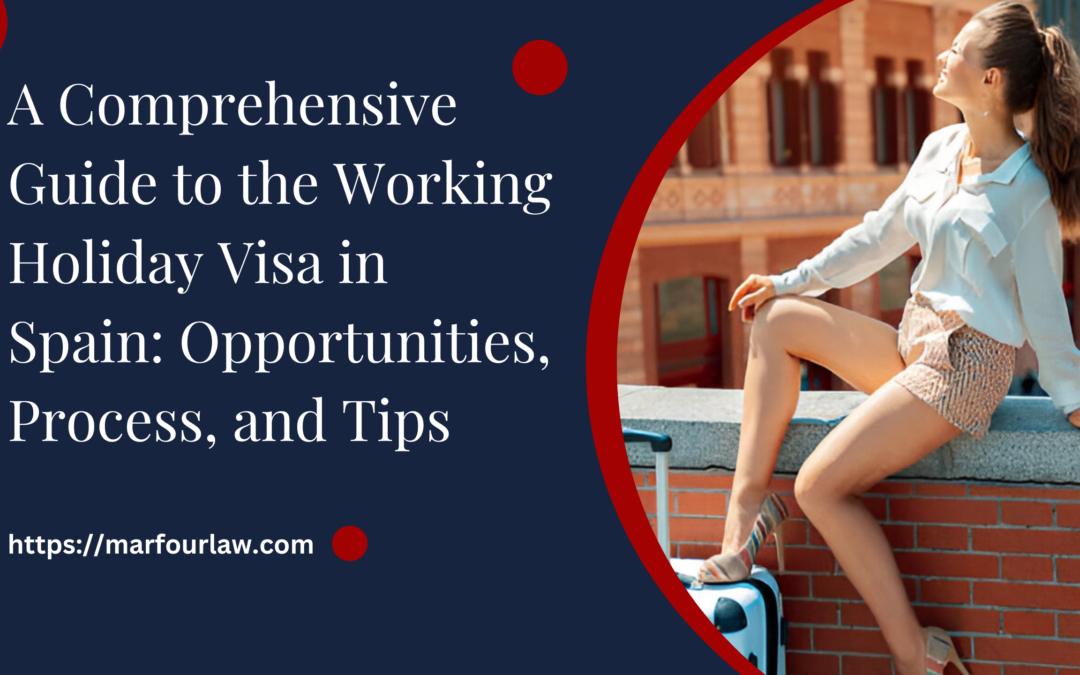The Working Holiday Visa in Spain offers a unique opportunity for young people from certain countries to live and work in Spain for up to a year. Whether you’re dreaming of soaking up Spanish culture or simply looking to fund your travels, this visa could be the perfect solution. But what exactly does it involve, and how do you go about getting one? In this blog, we’ll break down the essentials, covering everything from the application process.
What Is a Working Holiday Visa in Spain?
A Working Holiday Visa allows young people from certain countries to live in Spain for up to a year while having the opportunity to work and travel. It’s an excellent way to experience life in Spain, earn some money, and immerse yourself in the culture.
Purpose of the Working Holiday Visa
The main purpose of this visa is to provide young travellers with a chance to explore Spain while supporting themselves financially. It’s designed for individuals who want to experience life in Spain more deeply than they would as tourists by allowing them to work temporarily while they travel around the country.
Who Can Apply for a Working Holiday Visa?
This visa is available to citizens of specific countries that have bilateral agreements with Spain, such as Australia, Canada, and New Zealand. Applicants typically need to be between 18 and 30 years old (or 35 for some nationalities) and must meet certain requirements, such as having sufficient funds to support themselves at the start of their stay and holding valid health insurance.
How to Get a Work Visa in Spain?
Getting a work visa in Spain is a detailed process that requires careful planning and following specific steps. From securing a job offer to registering with local authorities after your arrival, each stage is crucial for ensuring your legal ability to work in Spain. Let’s break down the process in detail.

Secure a Job Offer
- Finding the Right JobThe journey to obtaining a work visa in Spain begins with securing a job offer from a Spanish employer. This is not just any job; it must require your specific skills or experience, which the employer can argue is not readily available in the local workforce.
- Employer Sponsorship: Your potential employer plays a significant role in this process. They must be willing to sponsor your work visa, which involves proving that they have made a genuine effort to fill the position with a local candidate but have yet to be successful. This is often done by advertising the position locally and documenting the recruitment process to show that no suitable Spanish or EU candidates were found.
Obtain a Work Permit
Employer’s Responsibility: Once you have a job offer, the next step is to obtain a work permit. This is something your employer must apply for on your behalf. The application is submitted to the Spanish Ministry of Labor, where it will be reviewed to ensure all requirements are met.
Required documentation for the work permit application, your employer will need to provide several documents, including:
- Employment Contract: A copy of your signed employment contract.
- Job Description: Detailed information about the job, including duties, salary, and working conditions.
- Proof of Recruitment Efforts: Evidence that the job was advertised locally and that no suitable candidates were found.
- Company Information: Documents proving that the company is legally operating in Spain and able to hire foreign workers.
- Application Review: The Ministry of Labor will review the application, which can take several weeks to a few months. If the application is approved, you will be granted a work permit, which is a crucial document needed for the next step.
Apply for a Work Visa
- Submitting Your Application With an approved work permit in hand, you can now apply for a work visa at the Spanish consulate or embassy in your home country. This application is a comprehensive process that requires you to submit various documents.
- Required DocumentsThe documents you’ll need typically include:
- Passport: A valid passport with at least six months remaining before expiration.
- Work Permit Approval: The official approval of your work permit from the Ministry of Labor.
- Medical Certificate: A certificate from a doctor stating that you do not have any diseases that could pose a public health risk.
- Criminal Record Check: A police clearance certificate proving you have no criminal record in your home country.
- Visa Application Form: A completed visa application form, often available on the consulate’s website.
- Visa Fee: Payment of the visa application fee.
Attend the Visa Interview
- Interview Preparation: In some cases, the Spanish consulate may require you to attend an interview as part of the visa application process. During this interview, consular officials will ask questions about your job, your plans in Spain, and your background.
- What to Expect? The interview is usually straightforward, but it’s important to be prepared. Bring all your documents, be ready to explain your role in Spain, and answer any questions about your employment and financial stability. The purpose of the interview is to ensure that you meet all the visa requirements and that there are no concerns about your intentions in Spain.
Wait for Visa Approval
- Processing Time After submitting your application and attending the interview, there is a waiting period for your application to be processed. Processing times can vary depending on the consulate and the specifics of your application, but it generally takes from a few weeks to a few months.
- Tracking Your ApplicationMany consulates allow you to track the status of your application online. It’s important to monitor your application in case any additional information or documentation is required.
Arrive in Spain and Register
- Travel to Spain: Once your work visa is approved, you can finally travel to Spain. Upon arrival, you’re allowed to start working, but there are a few more steps to complete to ensure you’re fully compliant with Spanish law.
- Register with Local Authorities: Within 30 days of your arrival in Spain, you must register with the local authorities. This involves:
- Obtaining a Foreigner’s Identification Number (NIE): The NIE is a unique identification number assigned to foreigners in Spain. You’ll need this number for almost all official activities, including opening a bank account, signing a rental contract, or paying taxes.
- Applying for a Residence Permit: This permit allows you to live in Spain legally. It’s often issued as a card (known as a TIE) that you must carry with you at all times. To get this permit, you’ll need to provide your work visa, passport, proof of residence (like a rental contract), and proof of registration with the local town hall (empadronamiento).
With your NIE and residence permit, you’re all set to start your new job in Spain. It’s important to keep track of your visa and permit expiration dates and to renew them as required to maintain your legal status in Spain.
10 Benefits of the Spanish Working Holiday Visa
The Spanish Working Holiday Visa offers young travellers the opportunity to live, work, and explore Spain for an extended period. Below are ten key benefits of this visa:

Cultural Exchange
The Working Holiday Visa allows you to immerse yourself in Spanish culture. Living in Spain gives you the chance to experience its traditions, festivals, cuisine, and way of life firsthand, providing a deep cultural exchange that goes beyond what a short visit could offer.
Work and Travel Freedom
With this visa, you can work part-time while travelling throughout Spain. This flexibility means you can fund your travels as you go, making it easier to explore different regions of the country without depleting your savings.
Language Learning
Living and working in Spain offers a fantastic opportunity to learn or improve your Spanish language skills. Being surrounded by native speakers helps you pick up the language more naturally and quickly than in a classroom setting.
Building International Work Experience
Working in Spain can enhance your resume by providing international work experience. Employers often value candidates with diverse work backgrounds, and the experience of adapting to a new country’s work culture can make you more competitive in the job market.
Networking Opportunities
During your stay, you’ll have the chance to meet people from all over the world, including locals and other travellers. These connections can lead to lasting friendships and professional networking opportunities that may benefit your future career.
Extended Stay in Spain
The Working Holiday Visa allows you to stay in Spain for up to 12 months, which is significantly longer than a standard tourist visa. This extended period gives you ample time to explore the country and experience life as a local.
Affordable Travel
Because you can work while travelling, the Spanish Working Holiday Visa can make your trip more affordable. You can earn money to cover your living expenses and travel costs, reducing the financial burden of an extended stay in Europe.
Flexibility in Employment
The visa typically allows you to take on a variety of short-term jobs, providing flexibility in how and where you work. Whether you want to work in hospitality, retail, or even teaching, you have the freedom to choose jobs that align with your skills and interests.
Gateway to Europe
Spain’s location makes it a perfect gateway to explore other European countries. With this visa, you can easily travel to neighbouring countries during your time off, making the most of your European adventure.
Personal Growth
Living abroad on a Working Holiday Visa is an enriching experience that promotes personal growth. You’ll develop independence, adaptability, and a broader perspective on the world, all of which contribute to your overall personal development.
This visa offers a unique blend of work, travel, and cultural experiences that can be both personally and professionally rewarding.
How Does the Working Holiday Visa Differ from Other Visas?
The Working Holiday Visa (WHV) in Spain offers a unique blend of travel and work opportunities that set it apart from other types of visas. Here’s a closer look at how the WHV differs from other common visas.

Purpose of the Visa
- Working Holiday Visa: The primary purpose of the WHV is to allow young travellers to experience Spain while working to support their stay. It’s designed for those who want to explore the country and immerse themselves in the culture without the financial pressure of being a tourist.
- Other Visas: Other visas, like tourist or student visas, have more specific purposes. A tourist visa is solely for travel and sightseeing, with no work allowed. A student visa is for attending educational institutions, and while limited work may be permitted, the main focus is on studying.
Eligibility Criteria
- Working Holiday Visa: The WHV is generally available to young adults, typically aged 18-30 (or 35, depending on the country of origin). It’s intended for citizens of countries that have bilateral agreements with Spain.
- Other Visas: Eligibility for other visas varies widely. For example, a work visa requires a job offer and sponsorship from a Spanish employer, while a student visa requires acceptance into a Spanish educational institution. The age and nationality requirements are more specific than those for the WHV.
Work Flexibility
- Working Holiday Visa: The WHV offers great flexibility in terms of employment. Holders can take on various short-term jobs to fund their travels. This visa doesn’t tie you to a single employer or require a full-time commitment, making it ideal for those who want to explore different parts of Spain while working intermittently.
- Other Visas: Work visas are typically tied to a specific employer and job, often requiring full-time employment. Student visas may allow limited work, but the main focus must remain on education. Tourist visas, on the other hand, strictly prohibit any form of employment.
Duration of Stay
- Working Holiday Visa: The WHV usually allows for a stay of up to 12 months, giving ample time to explore Spain at a relaxed pace while working. This extended period is one of the main attractions of the WHV, offering more time than a standard tourist visa.
- Other Visas: The duration of stay for other visas varies. A tourist visa typically allows for a stay of up to 90 days, while a student visa is valid for the duration of the study program, which could be months or even years. Work visas also vary, usually lasting as long as the employment contract.
Application Process
- Working Holiday Visa: The application process for a WHV is usually straightforward, with fewer requirements than other visas. Applicants typically need to provide proof of funds, health insurance, and a return ticket, but they don’t need a job offer or acceptance into a study program.
- Other Visas: Other visas often have more complex application processes. A work visa requires a job offer and sponsorship from an employer, a student visa requires enrollment in a Spanish institution, and both may require more extensive documentation and interviews.
Cost and Financial Requirements
- Working Holiday Visa: The financial requirements for a WHV are typically lower compared to other visas. Applicants need to demonstrate they have enough funds to support themselves initially, but the ability to work means they can continue earning during their stay.
- Other Visas: Other visas often have higher financial requirements. For a work visa, applicants may need to show proof of salary and employment benefits. For a student visa, proof of tuition payment and sufficient funds to cover living expenses is necessary. Tourist visas usually require proof of funds to cover the entire stay without any income.
FAQs about the Working Holiday Visa in Spain
What is the age limit for applying for a Working Holiday Visa in Spain?
The Working Holiday Visa in Spain is typically available to individuals aged 18 to 30 (or up to 35, depending on the country of origin). Check the specific agreement between Spain and your home country for exact age limits.
Can I extend my stay on a Working Holiday Visa?
No, the Working Holiday Visa cannot be extended beyond the initial 12-month period. If you wish to stay longer, you will need to apply for a different type of visa or residency permit.
Are there any restrictions on the type of work I can do with this visa?
The Working Holiday Visa allows you to take on various short-term jobs, but some specific occupations might be restricted depending on the local regulations. Generally, you can work in sectors like hospitality, retail, and seasonal jobs.
Do I need to secure a job before applying for the Working Holiday Visa?
No, you do not need a job offer to apply for the Working Holiday Visa. However, you should have sufficient funds to support yourself initially and show proof of having health insurance for the duration of your stay.
What documents are required to apply for the Working Holiday Visa?
Typical documents include:
- A valid passport.
- Proof of funds.
- Proof of health insurance.
- A return flight ticket.
- Sometimes, a police clearance certificate.
Check the specific requirements of the Spanish consulate in your home country.
Conclusion
The Working Holiday Visa for Spain offers a fantastic opportunity for young travellers to immerse themselves in Spanish culture while working to fund their stay. With the flexibility to live and work across Spain, this visa opens doors to personal growth, language learning, and diverse work experiences. Unlike other visas, it provides a unique blend of travel and employment, making it ideal for those seeking an extended adventure in Spain. By securing a job, navigating the application process, and understanding the visa’s limitations, you can make the most of this enriching experience.

